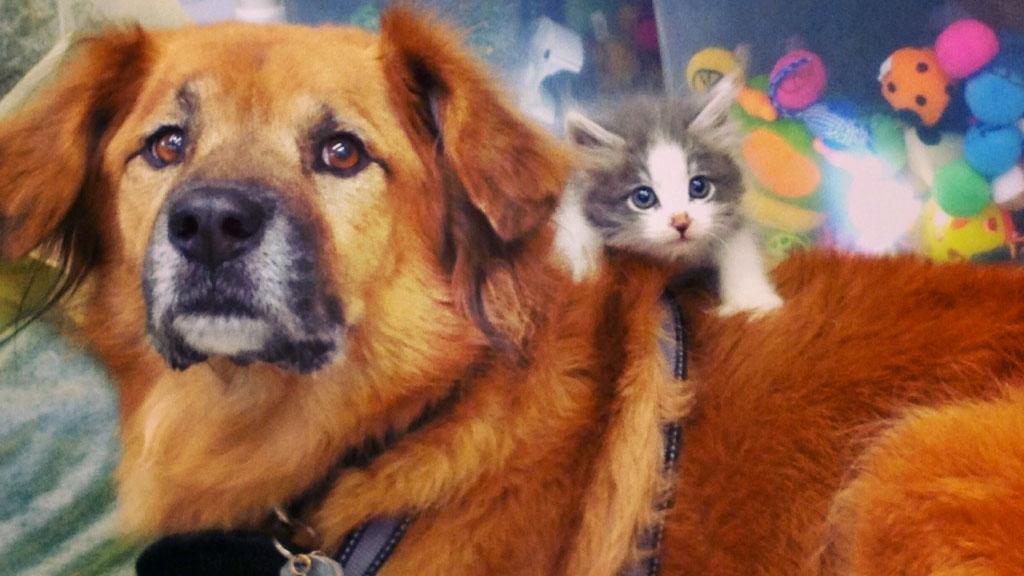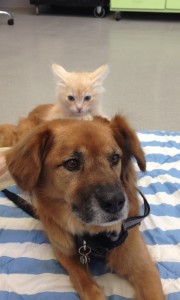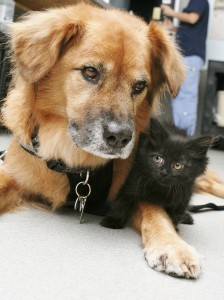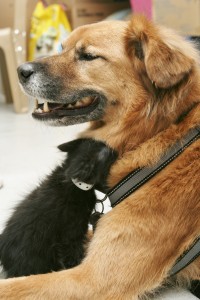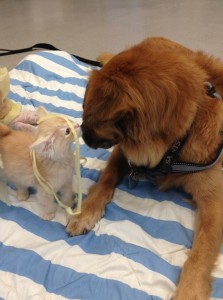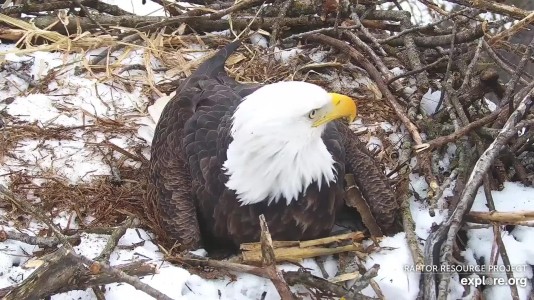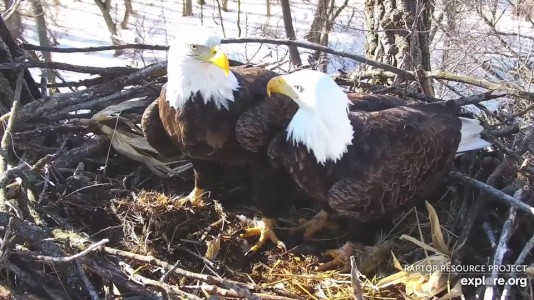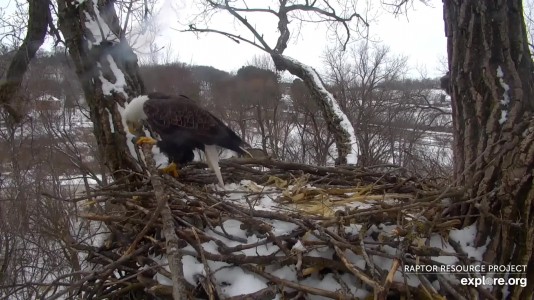Boots is an older dog with a cool new job. He’s a nanny for kittens. At least once a week, the chow/golden retriever mix heads to Arizona Humane Society’s Kitten Nursery and spends three to four hours with the young felines. During that short period of time, the animals get to know each other. They might start playing or cuddling. It can be really good for the kittens.
Every year, Arizona Humane Society takes in over 20,000 felines with the goal of finding them new homes. For the kittens, the group must ensure that they are “adaptable and adoptable,” according to public relations manager Bretta Nelson. That’s where the Kitten Nursery and Boots come into the picture.
The Kitten Nursery is home for kittens who are between five and eight weeks old. They aren’t old enough to be fixed and some need to gain weight before they are ready for adoption. While some of the kittens have their mothers with them, many don’t. At the Kitten Nursery, experts can look after the felines to get them healthy. They also need to help socialize the kittens at this crucial stage in life. Based on research showing that kittens can be influenced by what they learn between 2 to 7 weeks of age, the nursery’s feline specialist decided to bring in a dog. The hope is that the kittens will learn to be comfortable with other animals, which may help if they are adopted by families who already have pets.
Arizona Humane Society’s emergency rescue program brought in Boots after Hurricane Katrina. The dog was around two years old at the time. When rescuers found him, the puppy’s paws were so badly burned that they were wrapped in bandages. That’s how he got his name. Boots was later placed in a foster home and his temporary pet parent because his permanent one. A decade later, he is helping other animals in need of homes. “He was rescued and now he kind of pays it forward to the homeless kittens in our shelter,” says Nelson.
Boots is no stranger to cats. After being rescued, his new family had them and the dog developed a fondness for felines. “He’s very even-tempered,” says Nelson and that’s good for a dog whose job is to help much younger animals socialize.
Not all the kittens react the same way to Boots and some need a little time to warm up their canine nanny. “We try to take it slow,” says Nelson. “We want it to be at the pace of the kittens and we don’t want it to be a negative experience because that can impact them later in life as well.”
The experience will hopefully benefit the kittens at adoption time. “If someone comes in to adopt and has a dog at home, we can say this kitten has been around dogs and does well with them,” says Nelson. That’s important when there is a chance that someone might return a cat who doesn’t get along with other pets. “When you’re taking in more than 20,000 felines, you have to think outside of the box to find a way to get them adopted,” says Nelson. Boots might be the answer.
